Documentation
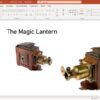
“Magic Lanterns, PowerPoints and Dual Coding” – Floor Mijland
It almost sounds like an item from a children’s book: ‘The Magic Lantern’. It evokes images of far off places, daring sword fights and magic carpet rides. In a way, these mental images are not far off. When listening to Frank Kessler, Jamilla Notebaard and Nico de Klerk in the Transmission in Motion seminar of…
Read more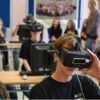
“The Objectivity and Interactivity in New Media Pedagogy” – Liang Yue
Whenever a new communicative technology is invented, researchers and businesses are arguing its value in didactics. This is not only because media have long been playing an educational role in the history of civilization, but also because new media’s affordances are in line with the enthusiasm of the educational revolution in terms of further objectivity…
Read more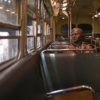
“Reflections on the Center of Human-Centered Design” – Danny Steur
Artists make art, designers make everything else – or so Jon McKenzie announces, somewhat polemically, while discussing the Design Thinking central to his Transmedia Knowledge for Liberal Arts and Community Engagement (2019). This transmedial design practice, he writes, is “a method of human-centered design developed to tackle complex problems found in social and organizational contexts”…
Read more
“A Different Look at Design Justice” – Polyniki Katrantsioti
After the last Transmission in Motion seminar, I felt inspired in thinking about the ways in which a digital community can offer back to the people that have been wronged, have had their rights violated, misunderstood, and eventually hurt by the media and the way they are portrayed. In a completely different case, the life…
Read more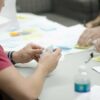
“True Interdisciplinarity” – Elena Roznovan
While the buzz word ‘interdisciplinary’ is used by many university programs today, what does interdisciplinarity really mean and what does it entail? If looked at closely the divisions amongst different fields of study within universities is still very prominent. Humanities to this day orient their methodologies of teaching and classroom proceedings in a seminar style….
Read more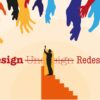
“Design, Un-design, Redesign” – Naomi Tidball
“Systems of Oppression, Inequality, and Inequity are by design. Therefore, they can be redesigned.” Antionette Carroll, Founder of Creative Reaction Lab. In late January 2021, the Transmission in Motion Seminar was joined by Jon McKenzie, Lara Harvey, and Veronica Cinibulk from Cornell University. The event-seminar focussed on the emerging field of…
Read more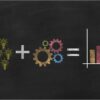
“Transmedia as a new Future of Pivoting” – Justyna Jakubiec
As the present-day reality is in constant motion, so are practices serving various ways of knowledge production. Academic knowledge, with the help of some of its creators, tries to escape the boundaries that have already proven to be limiting. Certainly, that does not mean that the production of academic knowledge is somehow outdated – on…
Read more
“The Role of Theory in Saving Lisa Montgomery” – Soyun Jang
To quote Jon McKenzie from this seminar, “theory is the problem, not the solution”, (McKenzie, Harvey, and Cinibulk 2021). Emphasizing the importance for the academy to engage with the world, McKenzie suggests that we merge critical thinking with critical design, “becoming cosmographer or co-designer of worlds” (McKenzie 2019). Critical design in this case extends media-making…
Read more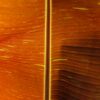
“Why is a Platonic Binary Useful?” – Hannah Harder
It seems that Jon Mckenzie posits the gap between doxa and episteme as a productive negative space that can reveal new forms of knowledge. These terms differentiate between the entangled, contextual knowing that is placed against formal knowledge production. My studies in media, art and performance have shown that we can engage with meaning through…
Read more
“On Civic Participation through Performative Protest” – Bernice Ong
In this session with Jon McKenzie, Lara Harvey and Veronica Cinibulk from Cornell University (January 27, 2021), we were introduced to the term Design Justice. This is an ongoing movement where communities and individuals would strategically use cultural performance forms to carry out activism work through persuasive, human-centered content. While the inherent positioning is one…
Read more
